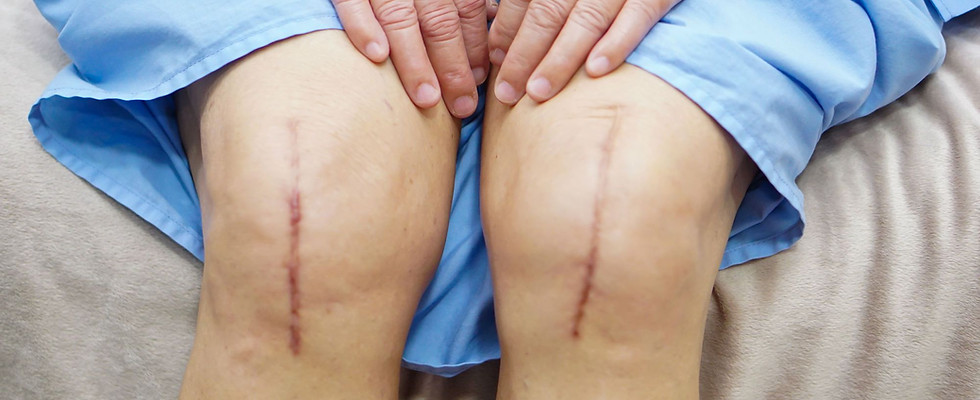
Post Joint Replacement Surgery
Post-Joint Replacement Surgery Recovery in Burlington
Regain Strength and Independence After Hip, Knee, or Shoulder Replacement
Living with stiffness, pain, or weakness after joint replacement surgery? At Cogent Physical Rehabilitation Center in Burlington, ON, we help patients rebuild mobility, restore strength, and confidently return to their daily activities following hip, knee, or shoulder replacement.
What Is Post-Joint Replacement Surgery?
Joint replacement surgery is often recommended for severe arthritis, injury, or degeneration when conservative treatments are no longer effective. While surgery replaces the damaged joint with an artificial implant, recovery doesn’t end in the hospital. Many people experience:
-
Stiffness or reduced range of motion
-
Pain or swelling around the operated joint
-
Difficulty walking, climbing stairs, or performing routine activities
-
Muscle weakness and balance issues
These challenges are normal but require structured rehabilitation to prevent complications and ensure lasting results.
Symptoms You May Experience After Surgery
-
Ongoing pain or soreness near the joint
-
Difficulty bearing weight or moving smoothly
-
Trouble with balance or coordination
-
Weakness in surrounding muscles
-
Delays in regaining independence
When To Seek Help After Joint Surgery
Recovering from surgery can feel overwhelming, but knowing when to act makes all the difference:
See a Physiotherapist at Cogent Rehab if you have:
You should book post-surgical rehabilitation with us if you experience:
-
Stiffness or limited mobility in the operated joint (e.g., hip, knee, shoulder)
-
Difficulty walking or using stairs without pain or instability
-
Weakness that makes daily tasks harder, like standing from a chair or lifting your arm
-
Ongoing swelling that doesn’t fully resolve with rest or elevation
-
Balance issues or fear of falling during recovery
-
Pain or tightness that interferes with sleep or daily activities
-
The need for safe progression back to work, sports, or hobbies
Early physiotherapy helps prevent long-term complications, speeds recovery, and restores function more effectively.
When to Seek Urgent Medical Care:
Always contact your surgeon or seek emergency care if you notice:
-
Severe, sudden increase in pain that is not relieved by rest or medication
-
Signs of infection: fever, chills, redness, warmth, or pus at the surgical site
-
Excessive swelling or inability to move the operated limb at all
-
Shortness of breath or chest pain (may indicate a blood clot)
-
Uncontrolled bleeding or wound reopening
-
Numbness, tingling, or loss of sensation in the operated limb
These may be signs of complications that require immediate medical attention, not physiotherapy.
Why Choose Cogent Rehab Burlington?
-
Specialized expertise in post-surgical and orthopaedic rehabilitation
-
Personalized treatment plans based on your recovery stage and lifestyle goals
-
Compassionate, one-on-one care to help you regain independence
-
Proven results in helping Burlington patients return to mobility with confidence
Treatment Options for Post-Joint Replacement Surgery Recovery
At Cogent Physical Rehabilitation Center in Burlington, we provide evidence-based physiotherapy programs to help you regain mobility, strength, and confidence after joint replacement surgery. Every recovery plan is tailored to your needs and goals, ensuring a safe and effective return to daily life.
-
Education & Self-Management: Guidance on posture, activity pacing, safe home exercises and long-term care.
-
Therapeutic Exercise: To rebuild muscle strength around the new joint (hip, knee, or shoulder) and restore range of motion.
-
Manual Therapy: To reduce stiffness, improve circulation, gently mobilize the new joint for smooth and pain-free movement.
-
Gait Training & Re-education: Training with mobility aids and progressive walking drills to restore safe and efficient movement
-
Pain & Swelling Management: Ice, Deep oscillation therapy, compression therapy, electrical stimulation to make exercise more comfortable.
-
Balance & Falls Prevention: To reduce fall risk, improve stability, and build confidence with everyday activities.
-
Functional Training: Practice of daily movements such as stair climbing, rising from a chair, reaching overhead, or bending
-
Specialized Supports: Custom bracing, taping, or thermoplastic splinting (when appropriate) to support joint alignment.
FAQs About Post-Surgical Recovery
Q1. Why should I choose private physiotherapy after surgery instead of only hospital-based care?
Private physiotherapy provides faster access to care, longer one-on-one sessions, and personalized treatment programs that continue beyond hospital discharge. At Cogent Rehab, we tailor each session to your specific goals, whether it’s walking without support, regaining strength, or returning to sports and hobbies.
Q2. How soon after surgery should I start physiotherapy?
In most cases, physiotherapy should begin as soon as your surgeon or medical team clears you, often within days of surgery. Early intervention helps reduce pain, prevent stiffness, and speed up recovery. Our team works closely with your surgical notes and recommendations to ensure safe progress.
Q3. What types of surgeries do you provide rehabilitation for?
We regularly help patients recovering from:
-
Total or partial knee replacements
-
Hip replacements
-
Shoulder replacements
-
Spinal surgeries
-
Other orthopedic and trauma-related procedures
Q4. How many sessions will I need?
The number of sessions depends on the type of surgery, your overall health, and your recovery goals. Some patients need a few weeks of care, while others benefit from several months of guided rehabilitation. Your physiotherapist will design a program and adjust it as you progress.
Q5. What should I expect in a session?
A typical session includes:
-
Pain and swelling management techniques
-
Gentle mobility and range-of-motion exercises
-
Strengthening programs to restore muscle function
-
Balance, gait training, and walking aid adjustments
-
Education on safe movement strategies at home
Q6. Is private post-surgical physiotherapy covered by insurance or WSIB?
Many extended health insurance plans cover physiotherapy. For motor vehicle accident or workplace injury cases, WSIB and auto insurance may provide coverage. Our admin team will guide you on your funding options.
Q7. Can you coordinate care with my surgeon?
Yes! We often communicate directly with your surgeon or medical team to ensure your program is aligned with your surgical precautions and recovery plan.
